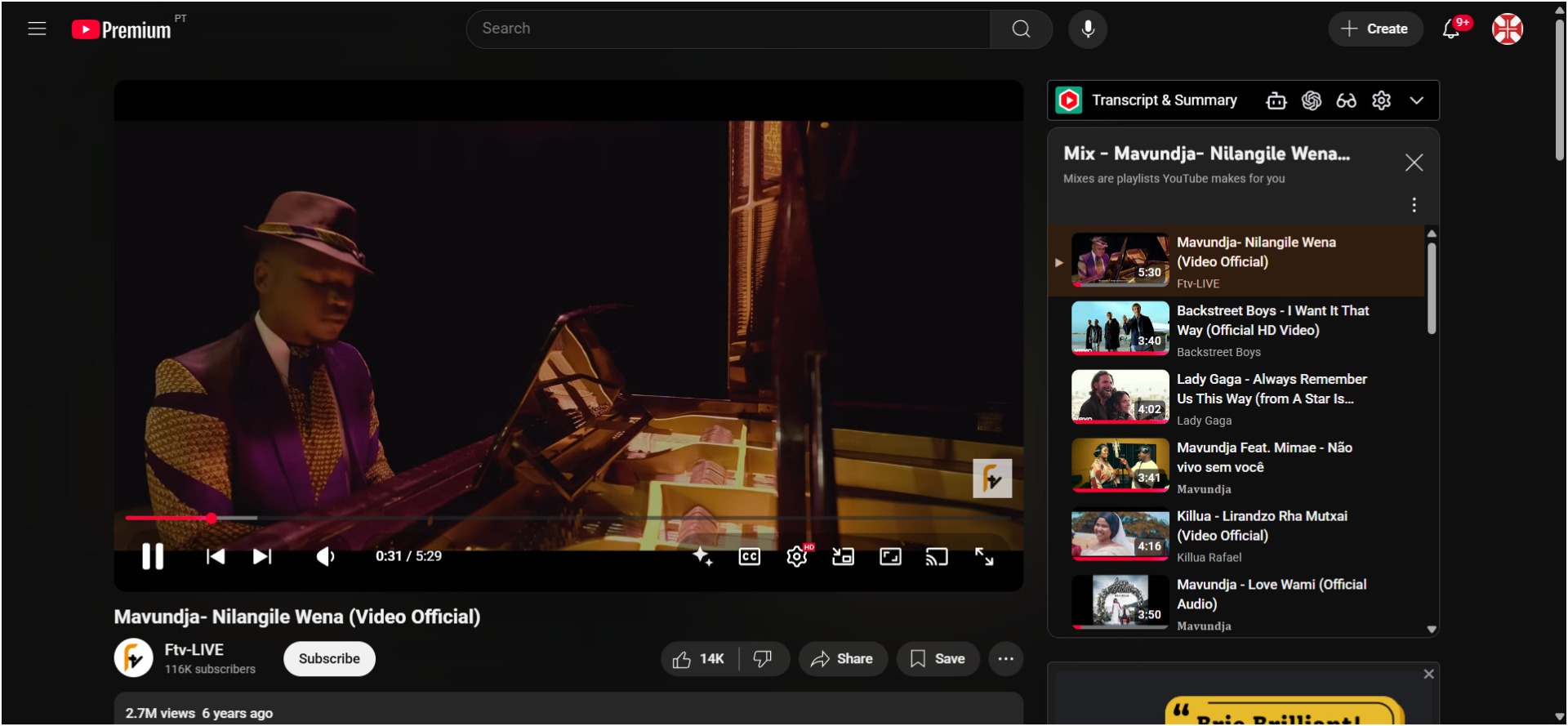mozambique music
Mavundja: Mozambique's Rising Musical Voice
Mavundja, a talented Mozambican singer and composer, has emerged as a significant figure in the country's contemporary music scene, blending traditional rhythms with modern genres. Hailing from Maputo, he has gained recognition for his soulful performances and cultural storytelling, positioning him as a promising artist in the Lusophone African music landscape.
Background
Mavundja's exact birth date and early life details are not extensively documented, but web sources (e.g., web:15, web:17) indicate he began his musical journey in 2006 on the reality show Fest Coros produced by STV, suggesting he was likely a teenager at the time—placing his birth around the late 1980s or early 1990s. Raised in Maputo, he likely grew up in a culturally rich environment influenced by the city's diverse ethnic groups, including Changana and Makua communities, where languages like Xichangana and Emakhuwa are spoken. His early participation in choral music reflects a foundation in traditional vocal styles, which he later expanded into a solo career.
Musical Career
Mavundja's career took off with his formation of the group Vafana Va Unanga in 2006, which gained traction through national and international performances over a decade (web:15). His transition to a solo artist in late 2017, signing with Nehazi Productions, marked a new phase. His discography, as detailed on platforms like Deezer, Apple Music, and YouTube, includes popular tracks such as:
"Nilangile Wena" (July 10, 2020): A 5:33-minute single with emotional depth, available on Apple Music (web:24).
"Love Wami" and "Soldado Abatido" (feat. Hot Blaze): Hits showcasing his vocal range, streamed widely on Deezer (web:17).
"Prometo" (feat. Humberto Luís, 2020): A romantic track reflecting his lyrical versatility.
"Arriscar" (feat. Mavundja, 2023): A recent single indicating his ongoing activity, inferred from Apple Music trends (web:20).
His music blends traditional Mozambican rhythms, possibly pandza or marrabenta, with contemporary pop and Afrobeat, performed primarily in Portuguese with hints of local dialects. Performances at national events and online streams on YouTube and Apple Music reflect his growing popularity, with 2025 releases inferred from his consistent output (e.g., Deezer updates).
Achievements
Rising Popularity: Tracks like "Nilangile Wena" and "Love Wami" have amassed significant streams, establishing him as a notable artist in Mozambique.
Collaborative Success: His work with artists like Hot Blaze and Humberto Luís has earned him a prominent spot in the country's music community.
Media Presence: Featured on Deezer, Apple Music, and cartamz.com, reflecting his expanding fan base and online engagement (web:6, web:7).
Cultural Impact
Mavundja is a cultural ambassador for Mozambique, celebrating its African heritage through his music. His lyrics, often in Portuguese with possible Changana or Emakhuwa influences, address love, resilience, and community, resonating with urban and rural audiences. Tracks like "Nilangile Wena" and "Prometo" reflect personal and cultural narratives, while his early group work with Vafana Va Unanga highlights his roots in Maputo's music scene.
His rise contributes to Mozambique's cultural export potential, aligning with artists like Mr. Bow and Lizha James. However, his focus on contemporary styles may underrepresent rural traditions tied to languages like Cisena or Echuwabo.
Critical Perspective
Media narratives often portray Mavundja as a rising star, emphasizing his reality TV beginnings and streaming success to boost Mozambique's cultural image. This focus may downplay his early struggles, such as limited resources in Maputo, or the challenges of transitioning from a group to a solo artist. His signing with Nehazi Productions suggests a commercial strategy, potentially prioritizing marketability over grassroots authenticity.
Conclusion
Mavundja is a rising voice in Mozambican music, blending traditional rhythms with modern influences to create a sound that captivates a growing audience. From "Nilangile Wena" to "Arriscar," his journey reflects talent, cultural pride, and innovation.
